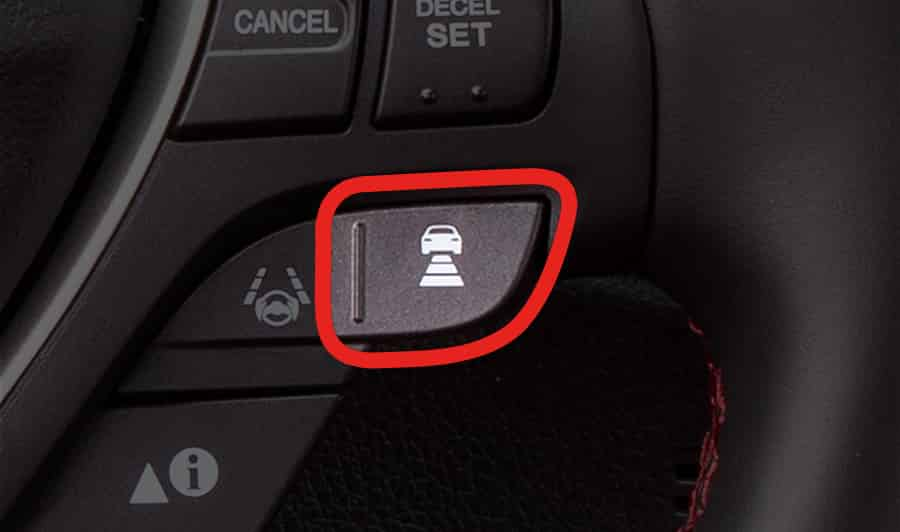

The Pros and Cons of Adaptive Cruise Control in Modern Vehicles
In today’s automotive landscape, many prospective car buyers are on the lookout for advanced driver assistance features to enhance their driving experience and safety on the road. These features, such as automatic emergency braking and lane-keeping assistance, not only protect vehicle occupants but also contribute to maintaining the car’s resale value. Among these advanced safety technologies, adaptive cruise control stands out as a popular choice. However, like any technology, it comes with its own set of advantages and disadvantages. In this article, we’ll explore the ins and outs of adaptive cruise control, how it works, and the potential issues associated with it.
Understanding Adaptive Cruise Control
Adaptive Cruise Control (ACC) is a feature designed to make long-distance driving more relaxed and less fatiguing. It represents a modern iteration of the traditional cruise control system, but with added intelligence. ACC incorporates various systems that automatically adjust a vehicle’s speed and position in relation to the traffic conditions and road ahead.
One key component of ACC is automatic braking. This system uses sensors to detect vehicles ahead and can automatically slow down the car to prevent a rear-end collision. When there are no obstacles in front, adaptive cruise control seamlessly resumes the vehicle’s previous speed, providing a seamless and stress-free driving experience.
Another feature associated with ACC is dynamic speed adjustment. This technology allows the car to slow down or speed up without requiring manual intervention from the driver. It utilizes GPS to determine the vehicle’s position relative to speed limit signs, helping drivers avoid unintentionally exceeding speed limits, particularly on highways and expressways.
In recent years, as automakers have delved into the development of autonomous vehicles, the industry has adopted a classification system that categorizes vehicles based on their autonomous capabilities. Vehicles equipped with adaptive cruise control typically fall into the Level 1 autonomous category. These vehicles often come with additional safety features such as parking assistance, lane-keeping assistance, and automatic emergency braking.
The Price of Safety: Cost Considerations
While adaptive cruise control can undoubtedly enhance safety and driving comfort, it’s important to note that it doesn’t come standard in every vehicle. The availability of this feature varies depending on the make and model of the car. Furthermore, adding ACC to your vehicle can come at a premium price.
For budget-conscious buyers, the added cost of adaptive cruise control may be a significant consideration when selecting a vehicle. The expense may not always be justified, especially for those who primarily drive in urban environments with little need for long-distance travel.
The Illusion of Security
One potential drawback of adaptive cruise control is that it can sometimes lull drivers into a false sense of security. When drivers rely too heavily on ACC, they may become less vigilant and slower to react in emergency situations. For instance, a fatigued driver who is overly reliant on ACC might need to regain control of the vehicle abruptly in the event of an accident or sudden obstacle on the road.
It’s crucial for drivers to remember that while ACC can assist with maintaining a safe following distance and adjusting speed, they must remain fully engaged and ready to take control at any moment. This means that even with ACC engaged, drivers should stay attentive and prepared to intervene if necessary.
The Fuel Efficiency Quandary
One of the most debated aspects of adaptive cruise control is its impact on fuel efficiency. While ACC is designed to optimize driving conditions and maintain a steady speed, it can have mixed results, particularly in certain driving scenarios.
According to a recent study cited by Kia, adaptive cruise control systems may prove less fuel-efficient than expected when navigating hilly or mountainous terrain with numerous curves. In such conditions, the system’s excessive speed adjustments—slowing down on inclines and speeding up on declines—can lead to higher fuel consumption. In some cases, vehicles equipped with ACC may consume up to 20 percent more fuel than if the driver were manually controlling the gas and brake pedals.
However, it’s important to note that in most driving conditions, adaptive cruise control can help drivers conserve fuel, save money, and reduce the overall cost of car ownership. When used wisely, it can contribute to improved fuel efficiency by maintaining a constant speed, minimizing unnecessary acceleration and braking, and optimizing the vehicle’s performance.
Maximizing the Benefits of Adaptive Cruise Control
To make the most of the benefits of adaptive cruise control while mitigating its potential downsides, drivers should consider the following tips:
- Remain Vigilant: Always stay engaged and alert while using ACC. Remember that it’s a driving aid, not a replacement for attentive driving.
- Adapt to Terrain: Be aware that ACC may not always deliver optimal fuel efficiency in hilly or curvy terrain. In such situations, consider manually controlling your vehicle’s speed and acceleration.
- Use the Right Lane: When driving on multi-lane roads, stick to the right-hand lane when using ACC. This can help maintain a more consistent speed and reduce the need for frequent lane changes and speed adjustments.
- Avoid Sudden Changes: Try to drive smoothly and predictably to minimize sudden acceleration and braking. This can contribute to better fuel economy and a smoother ride.
In conclusion, adaptive cruise control is a valuable feature that has the potential to enhance both safety and fuel efficiency on the road. However, it’s essential for drivers to use ACC responsibly and understand its limitations. By doing so, they can enjoy the benefits of this technology while ensuring a safe and efficient driving experience.
Add a comment Cancel reply
Categories
- Biography (4)
- Car Reviews (31)
- Car Tips (53)
- Classic Cars (45)
- Net Worth (12)
- Transportation (19)
Recent Posts
Related posts


Top 5 Reliable Car Dealerships in Lagos: Your Ultimate Guide

How to Buy a Tokunbo Car in Nigeria Without Getting Scammed








